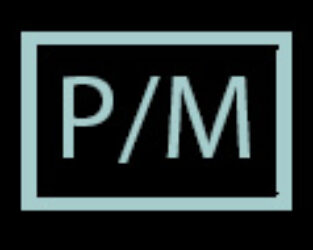
The most successful people I’ve met in the business world seem to share one important quality – the ability to leverage the talents and experiences of others. This applies to businesses of all sizes. But for sole-contributor entrepreneurs and small companies, that quality can sometimes be elusive. I’ve heard many reasons, or excuses for it. The most common being a rather limited resource pool. But is it? What’s the real problem?
As entrepreneurs, we get into the habit of wearing many hats. This oftentimes leads to us taking on too many tasks, a frustrating juggling act, and ultimately inefficient execution. We’ve all been there. So why do we continue to do it? That’s a complex question with an even more complex answer, but I want to address one of those reasons here . . . ego.
Let me start by saying ego is not always a bad thing. It can give us the purpose and motivation to do what we set out to do. But ego can work against us when it isolates us from the resources and ideas that can help our businesses. The problem is, entrepreneurs often become accustomed to providing the vision that defines an organization. But when that becomes the only source, that vision can become myopic and unidirectional. At the very least, we get stuck in repeating patterns. At worst, it leads to costly mistakes.
We’ve all heard the phrase “thinking outside the box” and we’ve all attempted, at one point or another, to embrace the concept. We’re good at recognizing the benefits of the “thinking outside the box,” but we’re not very good at “doing outside the box.” So all of that creative process yields to yet another “same as it ever was” execution. And sometimes it’s our ego’s fault. To shift direction can feel like admitting failure. And it can also feel like we’re not “controlling” our business – a problem for over-active egos. So we force control once more and fight evolution. And that’s too bad, because an evolving business has a much better chance of avoiding future failure than one that is stagnant. And note to ego: “doesn’t that still fall under the ‘control’ category?” Doesn’t traveling down the well worn road of repetition sound more like the road is driving the process, not us?
Maintaining the belief that “we know better than anyone else” has long been a roadblock for entrepreneurs. It’s a gross misperception, a strategic miscalculation, and it leads to many missed opportunities. It’s also poor leadership. We need to understand that leadership is not simply the enforcement and execution of an etched-in-stone agenda. I believe leadership is understanding how to cultivate, motivate, and leverage the human resources that not only execute, but help us determine “what” the agenda might be. Certainly how it might evolve.
In the business world, great ideas are like gold. But unless there is a culture to elicit and develop those ideas, they remain buried. Egos in management, ownership, and other areas of influence within an organization can shut down ideas from their staff as an exercise of authority. Not only does this discourage a valuable idea mill, it also lessens the equity employees feel on their job and as part of the organization. And that leads to resentment, the destruction of a “team” environment, and ultimately a lack of efficiency. Of course, not all ideas are particularly good ones, either from the ground up or the top down, but they are all worth hearing (and even considering) if we don’t let out egos get in the way.
So, what about sole-contributors? How do we get around the one-and-only ego holding everything together? By going outside the organization. Some of the best ideas and advice I’ve received have been from other business owners, people familiar with my industry, and even those in completely different lines of work – good ideas are often universal in nature. And sometimes that good advice flew in the face of my original plan. And at those moments, it was very tempting to dig in and stick to my guns, just because they were my guns. But that is an internal war, and one where both sides lose.
Where else can we find resources? By expanding our networks. Join groups, do volunteer, work, get involved in your community. Talk to people, even if it’s by virtual means for now. Are you leveraging social media as much as you could be? When was the last time you logged into LinkedIn? When we increase our networking, we not only increase exposure, we increase our potential resources for ideas, guidance, and advice.
That ego is a tough nut to crack sometimes. We can be set in our ways, stubborn, and sometimes even dismissive about the opinions of others. Those traits do a fantastic job of constructing strong walls that are difficult to penetrate. So, work on that part first. Then do a lot of listening – don’t be afraid of asking for help. And write (or type) ideas down. There have been many instances where an idea that seemed crazy yesterday, turned out to be the best solution for today.
Having the desire to improve your business with the help of others is a sign of strength and good leadership. Remember, even sole contributors need proper leadership – even if it comes from ourselves, right? So let that ego work for you, not against you, and tap into those idea mills – wherever you can find them.
Stay well and healthy,
MP
